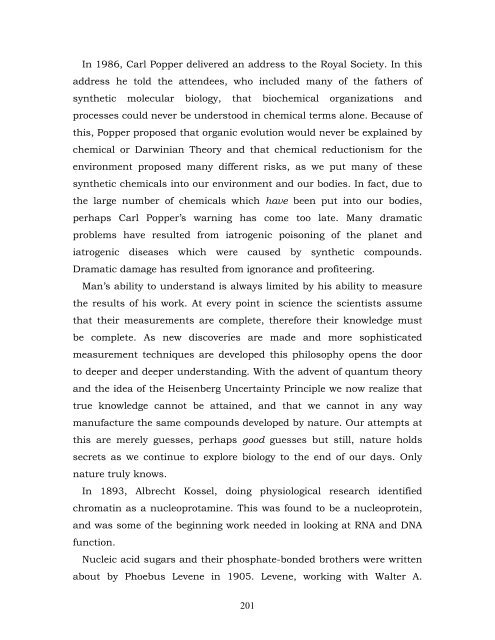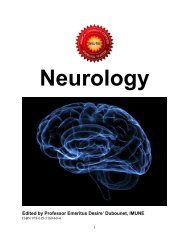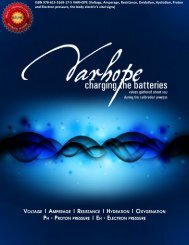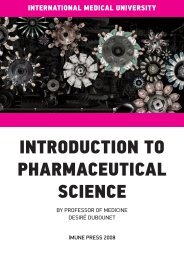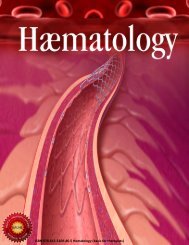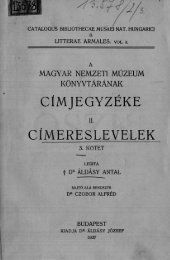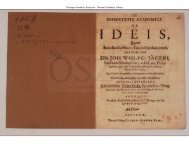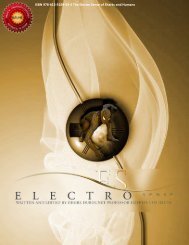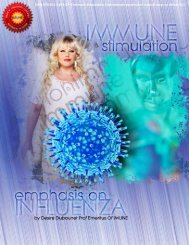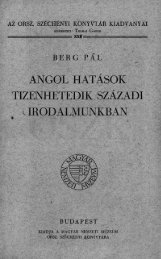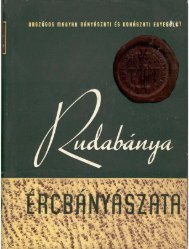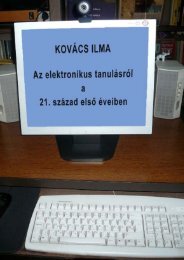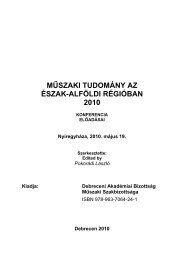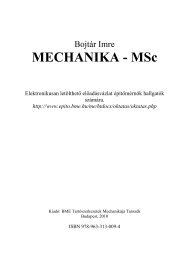- Page 1 and 2:
The Natural Repertory of Prof. Will
- Page 3 and 4:
The Natural Repertory of Prof. Will
- Page 5 and 6:
TABLES AND CHARTS Periodic Table -
- Page 7 and 8:
INTRODUCTION A repertory is a compi
- Page 9 and 10:
Protocol for Wellness � Relieve o
- Page 11 and 12:
We wish to briefly discuss quality
- Page 13 and 14:
into each batch and an electrical p
- Page 15 and 16:
homeopaths may not truly know about
- Page 17 and 18:
controlled using the QQC TM techniq
- Page 19 and 20:
HOW THE COMBINATION REMEDIES ARE US
- Page 21 and 22:
Homeopathy The theory and practice
- Page 23 and 24:
Significance of Homeopathy There is
- Page 25 and 26:
We have: AMERICA IS PREPARED MEDICA
- Page 27 and 28:
Dangers of Homeopathic Utilization
- Page 29 and 30:
� Energetic and electrical patter
- Page 31 and 32:
symptoms of pain as Naloxone can in
- Page 33 and 34:
INFLAMMATION Part of the Defense Ph
- Page 35 and 36:
THE HORMETIC PHILOSOPHY Over the la
- Page 37 and 38:
DENTAL MATERIALS (1 fl. oz.) Catalo
- Page 39 and 40:
SYNTHETIC CHEMICALS (1 fl. oz.) Cat
- Page 41 and 42:
VIRUSES CONJUNTIVITIS, VIRAL COMMON
- Page 43 and 44:
BACTERIA ACTINOMYSOSIS ADNEXITIS AE
- Page 45 and 46:
NOSODES, DENTAL ASTRO 1180 AUTOPOLY
- Page 47 and 48:
NOSODES, MEDICAL ACID PHOSPHATES AL
- Page 49 and 50:
PARASITES AMIDOSTOMUM ANSERIS, BIRD
- Page 51 and 52:
PARASITES, cont. TAENIA HYDATIGENA,
- Page 53 and 54:
POLLUTANTS I ABIETIC ACID ABRIN ACE
- Page 55 and 56:
POLLUTANTS II BROMINE BROMOPHORM BR
- Page 57 and 58:
POLLUTANTS III GILSONITE SLYCERYL D
- Page 59 and 60:
POLLUTANTS IV OZONE PARAFORMALDEHYD
- Page 61 and 62:
THE LIQUITROPHIC PHILOSOPHY In the
- Page 63 and 64:
CARDIO LIQUITROPHIC (4 fl. oz.) Cat
- Page 65 and 66:
LIPID LIQUITROPHIC (4 fl. oz.) Cata
- Page 67 and 68:
PULMO LIQUITROPHIC (4 fl. oz.) Cata
- Page 69 and 70:
AMINO ACIDS ALANINE (L-ALANINAMIDE)
- Page 71 and 72:
LIPIDS, cont. Monoglycerides C 8:0
- Page 73 and 74:
HORMONES ACETYL CHOLINASE ACETYL CH
- Page 75 and 76:
PEPTIDE YY PITUITARY DIURETIC HORMO
- Page 77 and 78:
Proenkephalin Syndyphalin Syndyphal
- Page 79 and 80:
ENZYMES ACETYL CHOLINE ESTER ACETYL
- Page 81 and 82:
ENZYMES, cont. LACTIC DEHYDROGENASE
- Page 83 and 84:
THE ANODYNE PHILOSOPHY Anodyne is t
- Page 85 and 86:
ANODYNE-C (1 fl. oz.) Catalog No. 0
- Page 87 and 88:
ANODYNE-T (1 fl. oz.) Catalog No. 0
- Page 89 and 90:
THE COMBINATION PHILOSOPHY Combinat
- Page 91 and 92:
CEPHALO-SD (1 fl. oz.) Catalog No.
- Page 93 and 94:
FEM-B (1 fl. oz.) Catalog No. 0068
- Page 95 and 96:
IMMUNOPOIE (1 fl. oz.) Catalog No.
- Page 97 and 98:
PROSTA-I (1 fl. oz.) Catalog No. 00
- Page 99 and 100:
THERACIRCULO (1 fl. oz.) Catalog No
- Page 101 and 102:
RESTORATIVE REMEDIES Ingredients: N
- Page 103 and 104:
SARCODES I ADENOIDS ADRENAL ADRENAL
- Page 105 and 106:
SARCODES I, cont. RETINAL ARTERIES
- Page 107 and 108:
SARCODES II 1 ST - 12 TH CRANIAL NE
- Page 109 and 110:
SARCODES III, cont. CEREBRAL PEDUNC
- Page 111 and 112:
SARCODES III, cont. MIDDLE CEREBELL
- Page 113 and 114:
Quality of Herbs America has often
- Page 115 and 116:
ORIENTAL HERBAL REMEDIES ANTHELMINT
- Page 117 and 118:
EXPECTORANT (1 fl. oz.) Catalog No.
- Page 119 and 120:
PREVENTATIVE (1 fl. oz.) Catalog No
- Page 121 and 122:
CHINESE HERBOLOGY AND HOMEOPATHY In
- Page 123 and 124:
allow us to re-evaluate the differe
- Page 125 and 126:
compound that is not a poison will
- Page 127 and 128:
In developing an herbal protocol to
- Page 129 and 130:
THE MIASM PHILOSOPHY In classical h
- Page 131 and 132:
MIASM-LEP (1 fl. oz.) Catalog No. 0
- Page 133 and 134:
THE PSYCHOLOGICAL PHILOSOPHY The Dr
- Page 135 and 136:
PSY-DEP/EX (1 fl. oz.) Catalog No.
- Page 137 and 138:
IMPONDERABLE HOMEOPATHY Imponderabl
- Page 139 and 140:
BACH REMEDIES Agrimony: For those n
- Page 141 and 142:
BACH REMEDIES, cont. Pine: For thos
- Page 143 and 144:
AGGRESSION ANGER ANXIETY AUTISTIC A
- Page 145 and 146:
ANIMAL HAIR (1 oz.) Catalog No. 029
- Page 147 and 148:
INHALANT REACTANTS ACACIA ACTINOMYC
- Page 149 and 150:
INHALANT REACTANTS, cont. MAPLE, SO
- Page 151 and 152:
PHENOLS I ACC ACETALDEHYDE ACETIC A
- Page 153 and 154:
PHENOLS I, cont. HYPOTHALAMUS SUBST
- Page 155 and 156: ALLERSODES ACC Acetaldehyde Acetic
- Page 157 and 158: ALLERSODES, cont. Hemoglobin Hesper
- Page 159 and 160: ALLERSODES, cont. Valeraldehyde Van
- Page 161 and 162: ALLERGINS, ANTIGENS, FOODS, cont. G
- Page 163 and 164: THE DEHABITUATE PHILOSOPHY In our s
- Page 165 and 166: VITAMINS The Dr. Recommends’ vita
- Page 167 and 168: VITAMINS ADERMINE HCL ANEURINE ANEU
- Page 169 and 170: POWDERED PRODUCTS In keeping with t
- Page 171 and 172: Bowel Nosodes 1 E. Coli Proteus Pse
- Page 173 and 174: Fungal Screen #3 Candida Albicans C
- Page 175 and 176: Stimulant Screen #2 Salt Animal fat
- Page 177 and 178: Food Additive Screen Acid salycylic
- Page 179 and 180: Pesticide 4 - Miscellaneous Paraqua
- Page 181 and 182: Foci Screen #6 Right side brain Foc
- Page 183 and 184: STOMACH Congenital 1, 2, 3 Upper re
- Page 185 and 186: SMALL INTESTINE Congenital nosodes
- Page 187 and 188: ENDOCRINE - Triple Warmer Meridian
- Page 189 and 190: Ly3 (Nose and Paranasal Sinuses) Co
- Page 191 and 192: eversal effects. A classic example
- Page 193 and 194: Let us now look at the homeopathic
- Page 195 and 196: LIST OF HOMEOPATHIC REMEDIES WITH S
- Page 197 and 198: LIST OF HOMEOPATHIC REMEDIES WITH S
- Page 199 and 200: LIST OF HOMEOPATHIC REMEDIES WITH S
- Page 201 and 202: provides enough of a buffer to stal
- Page 203 and 204: as only like treating like. With th
- Page 205: asic albuminous substance with an e
- Page 209 and 210: Many people around 1950 were strugg
- Page 211 and 212: By 1966, many of the details of the
- Page 213 and 214: The MEU, or one Pauling, is a defin
- Page 215 and 216: group. A type of bacteria in this g
- Page 217 and 218: technique in metabolism responsiven
- Page 219 and 220: THE HUMAN GENOME How to interpret t
- Page 221 and 222: Albinism (3) 11q14-q21 Albinism-dea
- Page 223 and 224: Cataract, zonular pulverulent (2) 1
- Page 225 and 226: Emphysema-cirrhosis (1) 14q32.1 Eno
- Page 227 and 228: Hemolytic anemia due to ADA excess
- Page 229 and 230: Incontinentia pigmenti, sporadic ty
- Page 231 and 232: *Mental retardation, X-Linked nonsp
- Page 233 and 234: Porphyria, cutanea tarda (1) 1p34 P
- Page 235 and 236: Thyrotropin-releasing hormone defic
- Page 237 and 238: LECTINS Lectins are proteins or gly
- Page 239 and 240: OLIGO ELEMENTS FIRE DIATHESIS III M
- Page 241 and 242: 235 METALLIC ELEMENTS ALUMINUM AMER
- Page 243 and 244: PHENOLICS, cont. Gaba: Lowers blood
- Page 245 and 246: VENOMS Many different types of veno
- Page 247 and 248: In 1904, Paul Morawitz introduced t
- Page 249 and 250: and systolic arrest of the heart mu
- Page 251 and 252: Snake Venoms Containing NGF Oftenti
- Page 253 and 254: Key: Distribution of Hemorrhagic, L
- Page 255 and 256: Another area to explore is the libe
- Page 257 and 258:
The Colorado River toad venom is kn
- Page 259 and 260:
homeopathic forms, whereas many of
- Page 261 and 262:
Renal Failure with Known Lesions in
- Page 263 and 264:
Chugh KS, Pal Y, Chakravarty RN et
- Page 265 and 266:
GEMMOTHERAPY Gemmotherapy consists
- Page 267 and 268:
GEMMOTHERAPY, cont. Vaccinium Vitis
- Page 269 and 270:
Classical Hahnemanian Singulars, co
- Page 271 and 272:
evolution of the minds of men. This
- Page 273 and 274:
Reference vanilla's aroma can be re
- Page 275 and 276:
Thus, in determining that synthetic
- Page 277 and 278:
There are possibly millions, if not
- Page 279 and 280:
Just because the study tells us tha
- Page 281 and 282:
Acetazolamide Acetyldigitoxin Alkav
- Page 283 and 284:
Dopamine Hydrochloride Doxepin Hydr
- Page 285 and 286:
Meclizine Hydrochloride Meclofenama
- Page 287 and 288:
Pseudoephedrine Hydrochloride; Trip
- Page 289 and 290:
malpractice and iatrogenic damage s
- Page 291 and 292:
meaning that there are fourteen cou
- Page 293 and 294:
Jos Kleijnen, Paul Knipschild, and
- Page 295 and 296:
“stupid body” is given an MAO i
- Page 297 and 298:
The FDA was formed by Dr. Clayton t
- Page 299 and 300:
sworn on the altar to oppose any ty
- Page 301 and 302:
We need to use them to help determi
- Page 303 and 304:
Now, let us be more specific as to
- Page 305 and 306:
need to take Chopra’s advice, and
- Page 307 and 308:
METABOLIC PATHWAYS This section inc
- Page 309 and 310:
Pyrroline-5-carboxylate reductase S
- Page 311 and 312:
UDP galactose-ceramide galactosyltr
- Page 313 and 314:
Cholinephosphate cytidylyltransfera
- Page 315 and 316:
Di-phosphomevalonate decarboxylase
- Page 317 and 318:
Muconate cycloisomerase myo-Inosito
- Page 319 and 320:
313
- Page 321 and 322:
315
- Page 323 and 324:
317
- Page 325 and 326:
319
- Page 327 and 328:
321
- Page 329 and 330:
323
- Page 331 and 332:
325
- Page 333 and 334:
327
- Page 335 and 336:
Dr. Recommends is dedicated to deve


